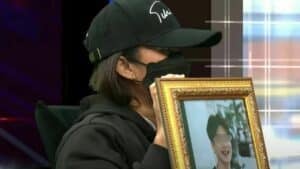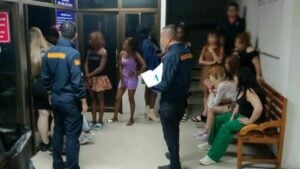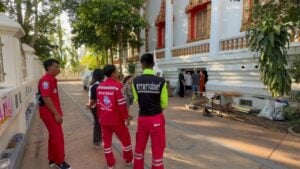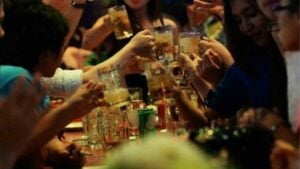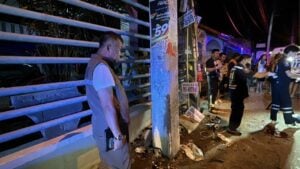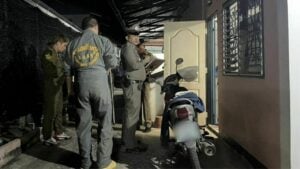Brazil’s skateboarders who choose self-confidence over crime

When it comes time for Sandro Soares’ free lessons, the kids and teens usually knock on the gate with their skateboards. Soares, known to most as Testinha, in June resumed training sessions several times a week after classes were put on hold for many months due to the coronavirus pandemic.
His wife Leila, an educator, supports the passionate 43-year-old skateboarder. Before the group heads to a nearby sports ground, the couple often hands out snacks and drinks to fortify the kids before they start their skateboard workout. Once at the paved area, they set up small ramps and other obstacles, and start the warm-up routine. Then the more- and less-experienced skaters spread out on different sides of the field — and off they go.
The couple launched Social Skate in 2011 as a charity-funded non-governmental organization. On the lookout for a suitable location for skateboard lessons, they found a run-down sports area where drug dealers hung out. With a skateboard under his arm, he took heart and approached the dealers, Testinha recalled. “I offered free skate lessons for their kids, too. I guess that convinced them.”
The dealers agreed to stop selling drugs on that particular field.
Skateboarding as crime prevention
Teaching socially disadvantaged children to skateboard for free is the basic idea behind Social Skate. “There are hardly any free leisure activities for children and young people in the area,” Testinha said, adding they are sorely needed because hardly anyone in the poor Calmon Viana neighborhood can afford paid sports or music lessons for their children. Calmon Viana is in Poa, a city in the Sao Paulo metropolitan area.
Brazil has plenty of cities like Poa that grapple with crime, violence and unemployment. During the months the lessons were put on hold because of the coronavirus pandemic, Testinha and his team distributed food to make up for the children’s regular free meals at Social Skate and at school.
Testinha looks back at the long years of working with young people and skateboarding. For 10 years before he founded Social Skate, he worked in juvenile detention centers as a social worker who skateboarded. He saw the paths young detainees could be headed towards when subjected to negative influences and with no one showing them alternatives. “It’s much better if we prevent kids from going off the rails in the first place than if we start when they’re already in prison,” he said.
Fall down and get up again
The skateboarding lessons are intended to teach children discipline, resilience, self-confidence and social skills. “When you skate, you often try a trick and don’t get it right at first — but you don’t give up, you try a second time and a third time,” Rafael Vinicius da Silva, a teenager who has been skating at Social Skate for a few years, told DW during a lesson weeks before the pandemic hit in 2020.
Learning to get up again and not giving up are skills that are good to have in any case, he said, arguing he had to overcome his shyness. “If you want to skate, you’re forced to leave the house. You often meet new people,” he said.
At the end of each class, the group gathers to talk about what went well and what did not. Sometimes, bigger issues are discussed like what it means to respect the other person, or why it’s important to make an effort not only at skating but also at school. “If you get good grades at school, sometimes you get to go on a field trip or pick out shoes or an item of clothing,” Luana Alcantara da Costa told DW. Clothes and skateboards are donated to Social Skate.
In addition to cooperating with other NGOs and campaigns with well-known skaters, Social Skate most recently received support from Rayssa Leal, Brazil’s new skateboarding superstar. The 13-year-old won a silver medal in women’s street skateboarding at the 2020 Tokyo Olympics and was the recipient of the International Visa Award for athletes who best represent Olympic values. Social Skate was her chosen charity for the prize money of $50,000 (€44,000).
Child poverty widespread in Brazil
Over the years, more than 1,000 children have taken part in the free skateboarding lessons, Testinha said. He sees his work as an investment in the future — which is much-needed because the public sector often neglects children and young people, he said. According to the Brazilian Abrinq foundation, almost half of all children aged 0 to 14 live in poverty in South America’s most populous country.
As a result, NGOs have to take on tasks that should be handled by the state, Testinha said. He is proud and hopeful that the country keeps producing skateboarding talent. “I plan to keep doing this until I’m old,” he said. “That’s my mission.”
This article was originally written in German.
SOURCE: DW News
Latest Thailand News
Follow The Thaiger on Google News:



